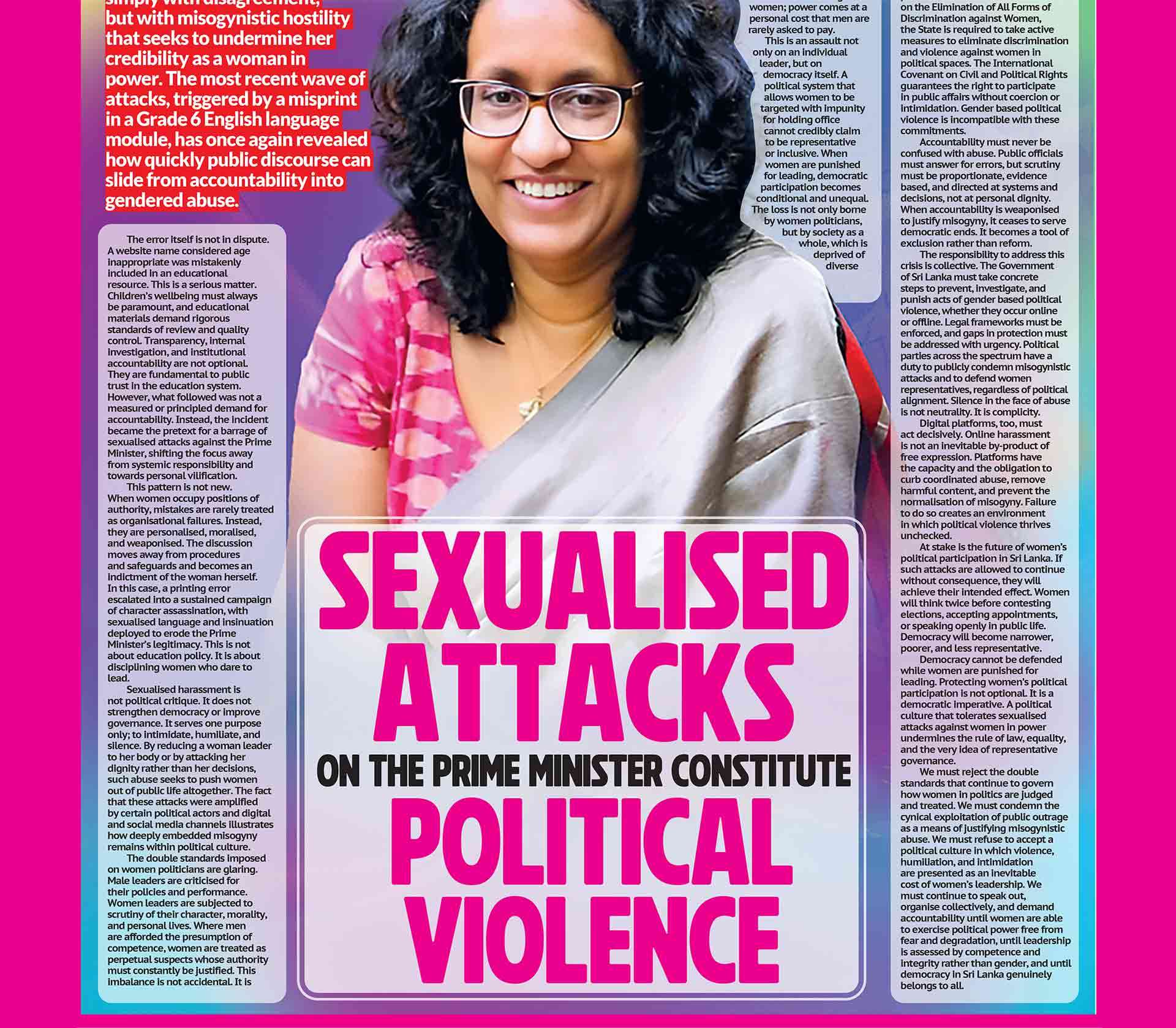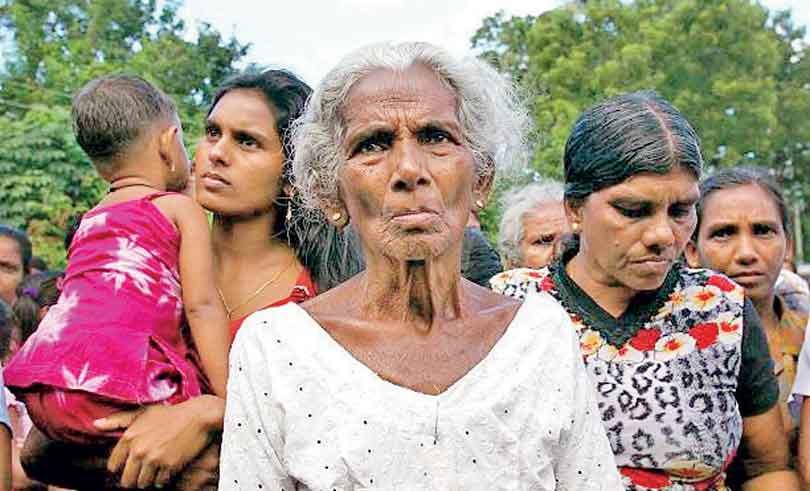
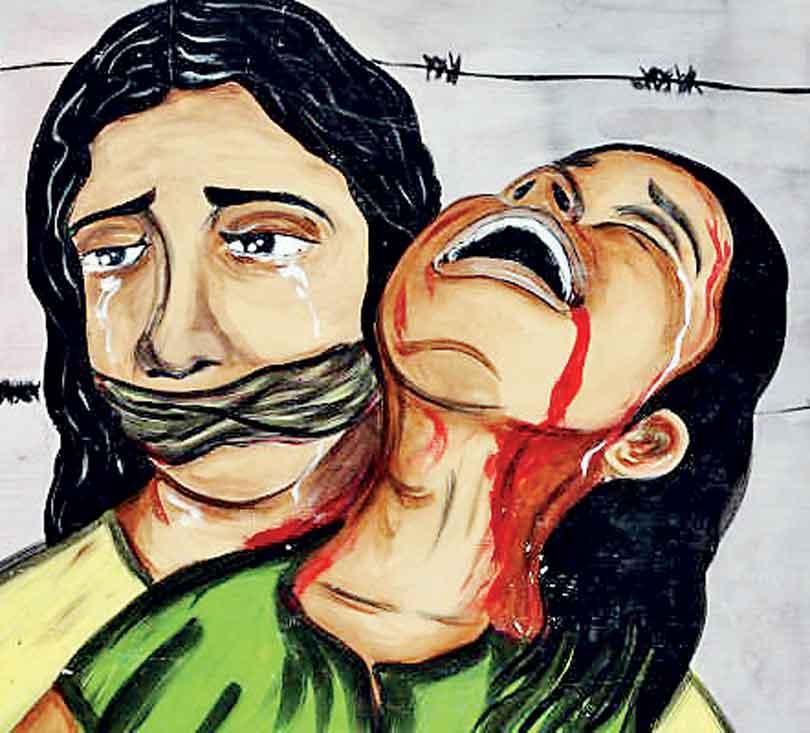
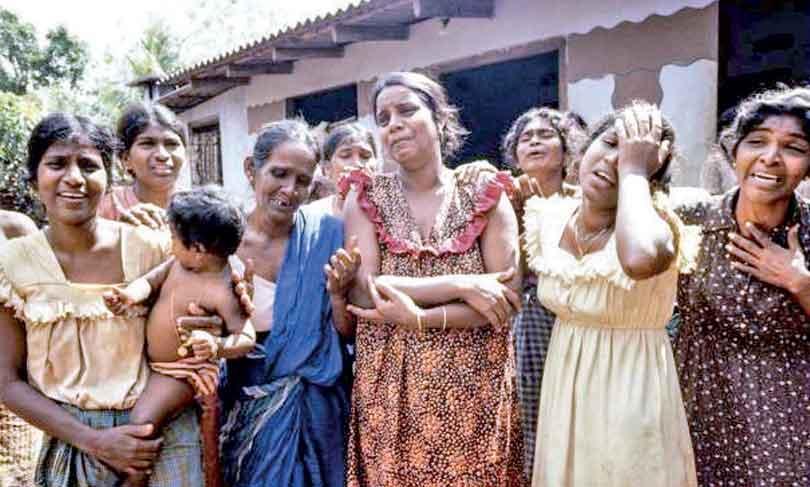
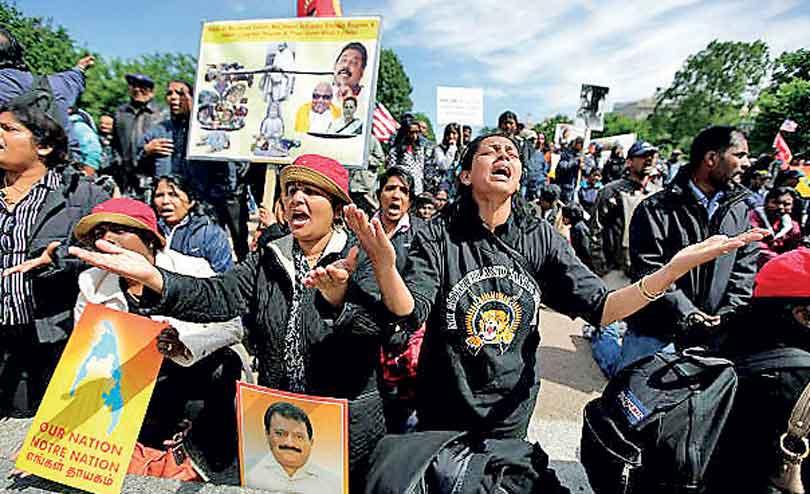
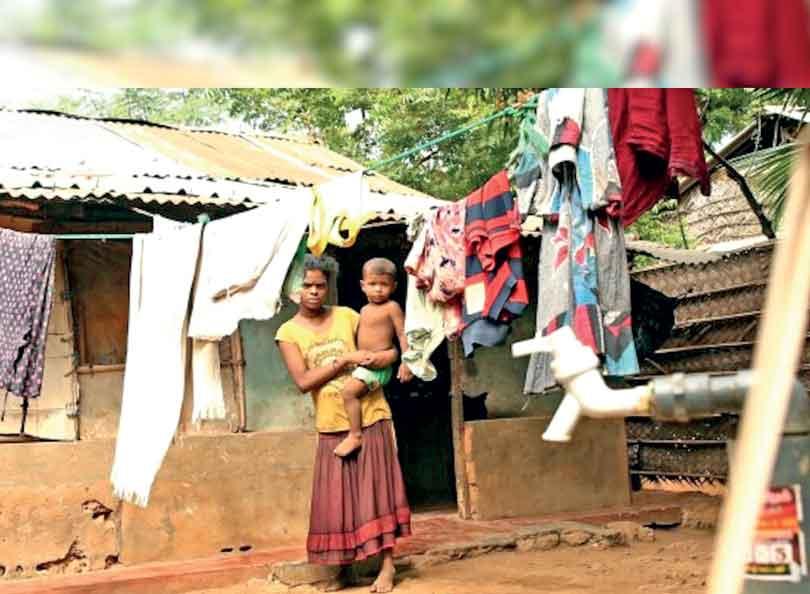
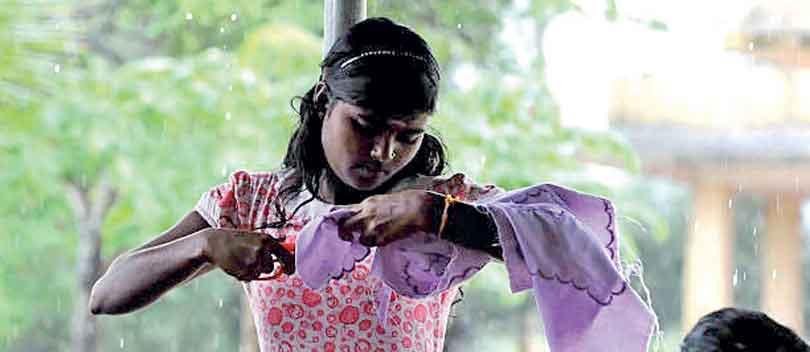
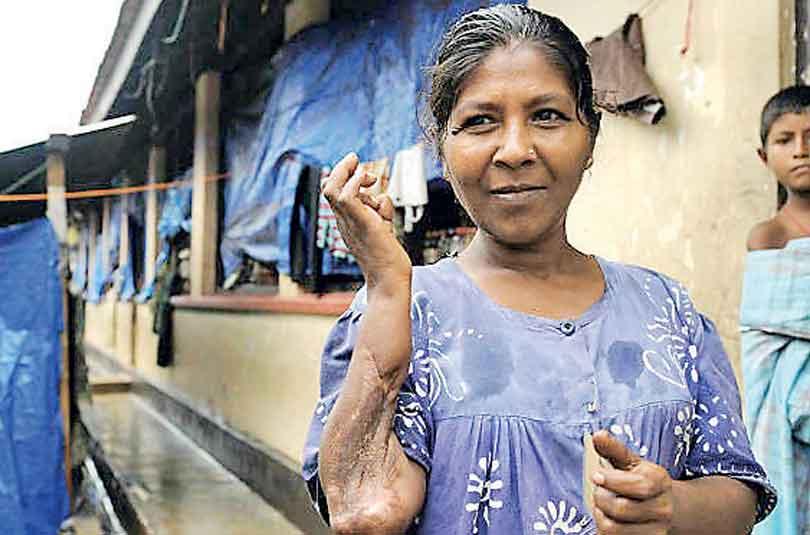
Sex trafficking is flourishing in the North-East. Women, widowed by war and excluded from the job market, are now exported. Yes, exported to the Middle East as domestic workers.
So, guess what? One article wasn’t enough to cover decades of silence. Shocking, right? But here we are again, peeling back the layers, because apparently, this is a series now, not a one-off. Also, isn’t it funny how some stories never make it to the headlines? Tamil women, for instance. Because, really, why would anyone care about the women who were systematically targeted and brutalized during the
Sri Lankan Civil War? That’s so, what, 2009? The violence may not come in the form of bombs anymore, but the bruises still hurt. They’re just less obvious now. Like a baby thrown into a bush by police officers on November 9, 2024. No big deal, right? Just another day in the life of a Tamil family in Jaffna. Cute story. Let’s rip it to shreds. Because if feminism skips over Tamil women, it’s not feminism. It’s optics.
Raped into Silence
Let’s be brutally honest. Rape during and after Sri Lanka’s civil war wasn’t a side effect. It was a tactic. A punishment. A deterrent. A warning. A spectacle. We know this. They know this. Everyone knows this. But somehow, we’re all supposed to pretend we don’t. The Sri Lankan military has long been accused with ample testimony from survivors, families, and international organizations of using sexual violence as a means of control in the North and East. These claims are not just buried in reports; they are documented in horrifying detail in international investigations, including the Channel 4 documentary Sri Lanka’s Killing Fields, which features graphic evidence and survivor accounts of rape, torture, and extrajudicial killings during the final stages of the war.
We’re talking systematic rape during detention. Rape as interrogation. Rape in front of family members. Rape by multiple officers. Rape so brutal, some women didn’t make it out alive. And yet, amidst all this violence, the plight of Tamil women remains largely unheard, as they are forced into silence, both by fear and by the very systems that oppress them. Remember Sarathambal Saravanbavananthakurukal? Probably not, but she’s one of the many women who were murdered during the war. Abducted, gang-raped, and killed by Sri Lankan Navy personnel in 1999. A day later, her body was found. You’d think the international community would do something about it, right? Well, no. She got the same treatment as so many other victims. Absolutely nothing.
And let’s not forget Arumathurai Thanaluxmi, a 15-year-old girl gang-raped and murdered by Sri Lankan Army soldiers in 1996. Her case? Well, those soldiers were acquitted, because, naturally, who would hold them accountable? Certainly not an all-Sinhalese jury. Why would anyone even question the integrity of a system that allows this to happen? Don’t worry, we’ll all move on. No justice required here. It’s just a few dead women, right?
One woman from Mullaitivu recounted in a DW interview how, after her husband, a former LTTE cadre, was detained, military personnel visited her home repeatedly. Not to “check” on her. Not for peacebuilding. But to harass and extort her over intimate photos they somehow acquired. They threatened her. Demanded sex. Money. Compliance. And where are these perpetrators now?
Spoiler: promoted, transferred, or retired with pensions and the smell of nationalism on their boots.
From Guerrilla to Ghost
Post-war reintegration is such a cute word, isn’t it? Makes it sound like there’s a welcome parade and therapy dog waiting at the end of trauma. Let’s talk about what really happens to ex-female LTTE cadres. What happened to women who once commanded troops, treated battlefield wounds, and were ready to die for a cause? They're surveilled, harassed, blacklisted from jobs, and branded as ticking time bombs. In the novel Brotherless Night by VV Ganeshananthan, we see this agony through the lens of Sashi, whose journey mirrors the heartbreaking realities of countless women in war zones.
Caught between loyalty to their families and communities, and the brutal realities of a conflict they didn’t choose, Tamil women had no option but to navigate a landscape of trauma, loss, and unspeakable violence. Sashi’s experience as a medic and her internal struggle with her role in the war reflect the broader reality that, even as women carried the emotional and physical burdens of survival, they were also often forced to bear the weight of societal expectations, sacrificing their own safety and well-being. Amidst all this, their voices were too often silenced, their stories overlooked, and their suffering rendered invisible.
Never mind that the war ended 15 years ago. They're still being punished. Not for what they did, but for what they represent: Resistance. Memory. Proof that Tamil women didn’t sit quietly in war zones waiting to be saved. DW’s feature on former cadres like Suganthi tells it all: these women are abandoned by the state, NGOs, and society. Many remain unmarried because “no one wants a woman who held a gun.” Some have children born of rape and are forced to carry their trauma like a curse. Some are pushed into menial labour, while others, unable to cope with the surveillance and shame, attempt suicide.
Trafficked. Abused. Forgotten.
Sex trafficking is flourishing in the North-East. Women, widowed by war and excluded from the job market, are now exported. Yes, exported to the Middle East as domestic workers. Some return pregnant. Some return in coffins. Many never return at all. You think this is new? There are reports on how desperate families fall prey to trafficking rings promising stable jobs. Some women, especially former LTTE cadres, are pushed into sex work after exhausting all “legal” options. They’re then targeted by law enforcement, who treat them as criminals rather than survivors of war-induced poverty.
And if you think this is just “unfortunate,” here’s a thought: war didn’t end sex work. It created the conditions for it to thrive. That’s not a side effect. That’s structural violence.
Meanwhile, at the UN…What’s the UN doing, you ask? Well, they issued a strongly worded statement once. That should fix it. Despite multiple resolutions, calls for truth commissions, and symbolic visits to war zones, no meaningful international accountability mechanism has ever taken root in Sri Lanka. Every time a report inches toward naming names or investigating command responsibility, it’s met with geopolitical gymnastics and Tamil pain is swept under the rug of “non-interference.” Because genocide, apparently, is a matter of perspective.
When Feminism Has Selective Amnesia
Where are the feminist think pieces about this? Where are the international panels on wartime rape in Sri Lanka? Why is it easier to rally around a hashtag than to utter the words “Tamil,” “rape,” and “impunity” in the same sentence? Where is the outrage?
We live in a world where one wrong tweet can destroy a career, but the militarized rape of thousands of Tamil women often fades into the background, discussed in the footnotes of NGO reports. Western academia frequently explores “gendered violence in conflict zones,” but sometimes it avoids examining the uncomfortable truths tied to the political landscapes of these conflicts. Even “intersectional feminism” can occasionally stop short of recognizing the complexity of ethnic violence.
This is not to dismiss the remarkable progress made by feminism in bringing attention to issues of gendered violence, but rather to highlight the need for a broader, more inclusive dialogue, one that acknowledges the multifaceted layers of conflict, ethnicity, and gender. We must examine how these aspects intersect, especially in regions like Sri Lanka, where political violence has uniquely impacted women, especially those in marginalized communities.
It is infuriating how history repeatedly erases the voices of women like Dr. Rajini Thiranagama, silenced not just by the state, but by those who claimed to fight for liberation.
The Sri Lankan Army may have deployed brute force, but the LTTE was no less ruthless in its suppression of dissent. It is noted in one of the articles written by D.B.S. Jeyaraj, how Rajini was not killed by foreign forces or outsiders, she was gunned down by the very sons of Jaffna she once nurtured and treated, by a so-called liberation movement that could not tolerate a woman who dared to challenge their narrow militarism and expose the suffering of Tamil women. She was not just a casualty of war; she was deliberately executed to kill the feminist spirit that refused to be boxed into propaganda. The LTTE’s betrayal of Tamil women is as grotesque as the state’s violence, both wielded guns against those who dared to speak for justice, peace, and gender equity. Her blood stains not just the soil of Kokuvil but the conscience of every power that chooses ideology over humanity.
And while we keep peeling back the layers of silence around the Tamils of Sri Lanka, let’s not kid ourselves: the fight’s far from over. What about the children? The youth? The ones who inherit the scars of a past we’d rather forget, carrying the weight of erasure into a future that looks all too familiar? But hey, don’t worry. We’ll get there. Stay tuned.










